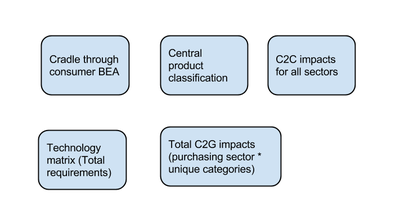Handprinter
| Moderator:Jouni (see all) |
|
|
| Upload data
|
What is Handprinter?
We often hear about our negative impact on the planet – our environmental footprint. But footprints are only half the picture. The other half is just coming into view.
It’s called a handprint, and it measures the positive impacts we can make, simply by changing the way we do things, at home, and at work.
Handprinter helps you know and grow your handprint.
First, it lets you calculate your environmental footprint. You enter in some simple data about things like what you eat, how often you travel, and what kind of products you buy, and Handprinter shows you your environmental impact.
Second, it offers suggestions for simple actions you can take to lower your impact on the planet – things like installing a low-flow showerhead, or carpooling to work or school. You can choose actions from our database, or come up with your own actions and add them to the collection.
And best of all, Handprinter lets you spread your ideas and actions around the world, see their progress, and measure them. When you refer your friends to Handprinter, and when their friends sign on, their handprints become part of yours. Inspire enough people, and your handprint eventually outweighs your footprint.
And with enough handprints, we can heal the planet.
Question
How to model life cycle impacts online in such a way that
- a user can add ideas about new actions, and
- calculations are based on open data?
Answer
Rationale
Data structures
First level: leaves
Functions (that solve some specified needs) ⇤--#: . Or Services? --Jouni (talk) 04:18, 23 January 2016 (UTC) (type: truth; paradigms: science: attack)
- Function (name)
- Description
- Need solved (category)
- Unit (of the service)
- Result (what amount of service is needed to fulfil the need)
Actions (that are to improve the situation i.e. create handprint)
- Depreciate (a way that is to be avoided) ⇤--#: . Or a function to fulfil the need? --Jouni (talk) 04:18, 23 January 2016 (UTC) (type: truth; paradigms: science: attack)
- Appreciate (a way that is to be encouraged)
- Type (of action: act, behavioral change, choice, deploy, replace, influence)
- Participant (who originally suggested the appreciated way)
- Description (of the appreciated way)
- Result (some kind of measure of the amount of service?)
Second level: branches
Ways (that are practical ways to provide one unit of functionality, i.e. to fulfil service the need. First, we assume that one way fulfils one need)
- Way (name)
- Function (name)
- Product (needed to produce a service; from the UN CPC list)
- Fraction (of product lifetime needed to produce one service) ⇤--#: . Where do we put this? --Jouni (talk) 04:18, 23 January 2016 (UTC) (type: truth; paradigms: science: attack)
- Unit (of product)
- Result (amount of product needed for a service)
Third level (trunk)
Products
- Product (name)
- Price (of product to the consumer)
- Lifetime (a)
- Usage per year -> total number of usage during lifetime can be derived
- Energy per usage (kWh?)⇤--#: . What about fuel used? --Jouni (talk) 04:18, 23 January 2016 (UTC) (type: truth; paradigms: science: attack)
- ⇤--#: . Other things such as water consumed or CO2 or carcinogens produced per usage? --Jouni (talk) 04:18, 23 January 2016 (UTC) (type: truth; paradigms: science: attack)
- Category (in the USEPA BEA (BEA = baseline environmental assessment?)
Calculations
Add actions
Suggest an action that could reduce the footprint of some activity. Fill in the form, then click "Add a new action".
Show actions by keyword
Click "Show actions" to browse through the list of action ideas that someone has suggested so far.
Show action contexts and activity categories
See also
- Handprinter API
- Central product classification
- heande:Talk:Handprinter
- OpenLCA
- International Sustainable Campus Network
- Handprinter/Activity category automatic code
- Handprinter/Action context automatic code
- Handprinter API
- Satellite matrix for life cycle assessment
- Normalisation data for life cycle assessments
- Life cycle assessment
- LCA of a coffee cup
- Damage vector for life-cycle analysis
- Cradle through consumer BEA
- Category:Life cycle assessment
- R-tools#Giving parameters in an URL
- Handprinter Main Page
- The Short List: The Most Effective Actions U.S. Households Can Take to Curb Climate Change by Gerald T. Gardner and Paul C. Stern
- SHINE
- International Standard Industrial Classification of All Economic Activities, Rev.4
- International Classification of Activities for Time-Use Statistics
- International Living Future Institute
- Epimorphics about Earthster2: Semantic Web based LCA
- NewEarth
- OpenLCA
- Global Trade Analysis Project GTAP
References
